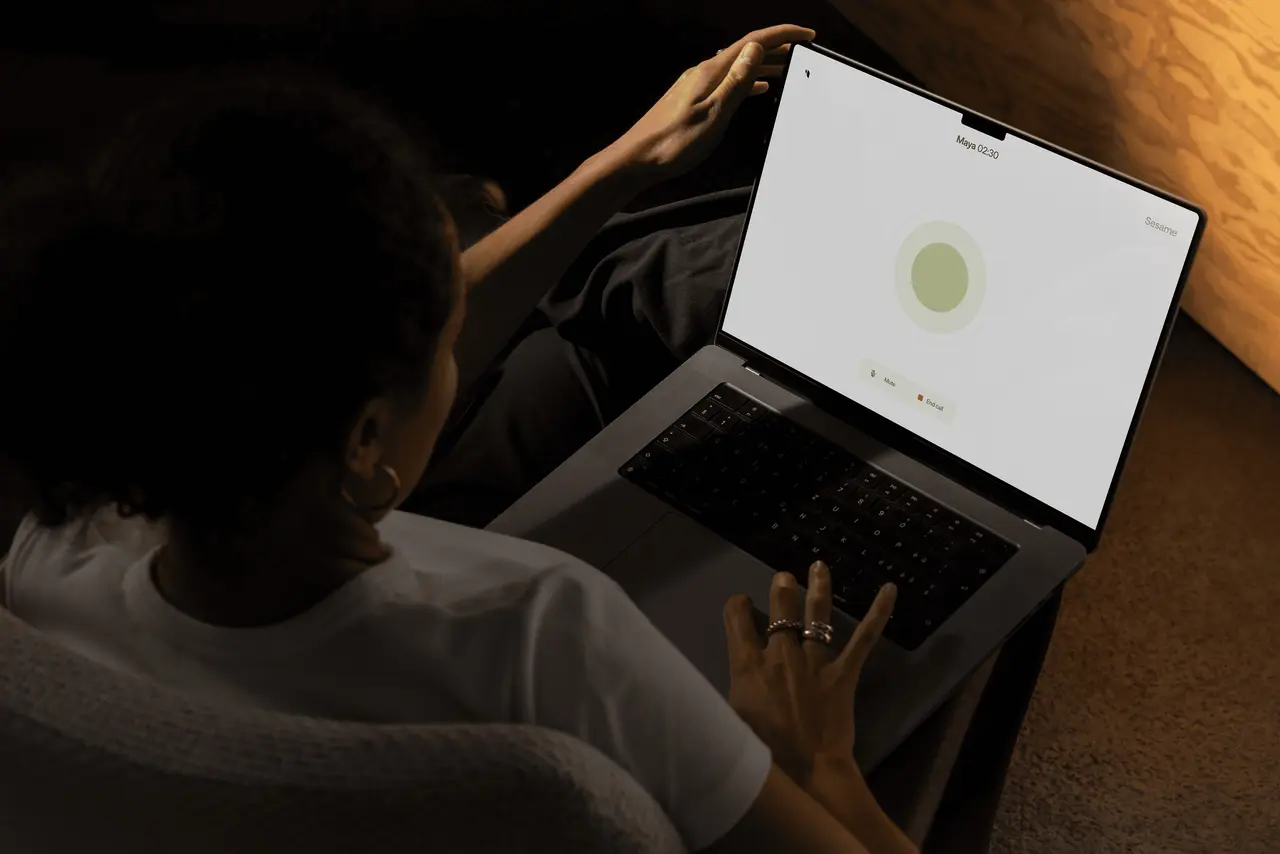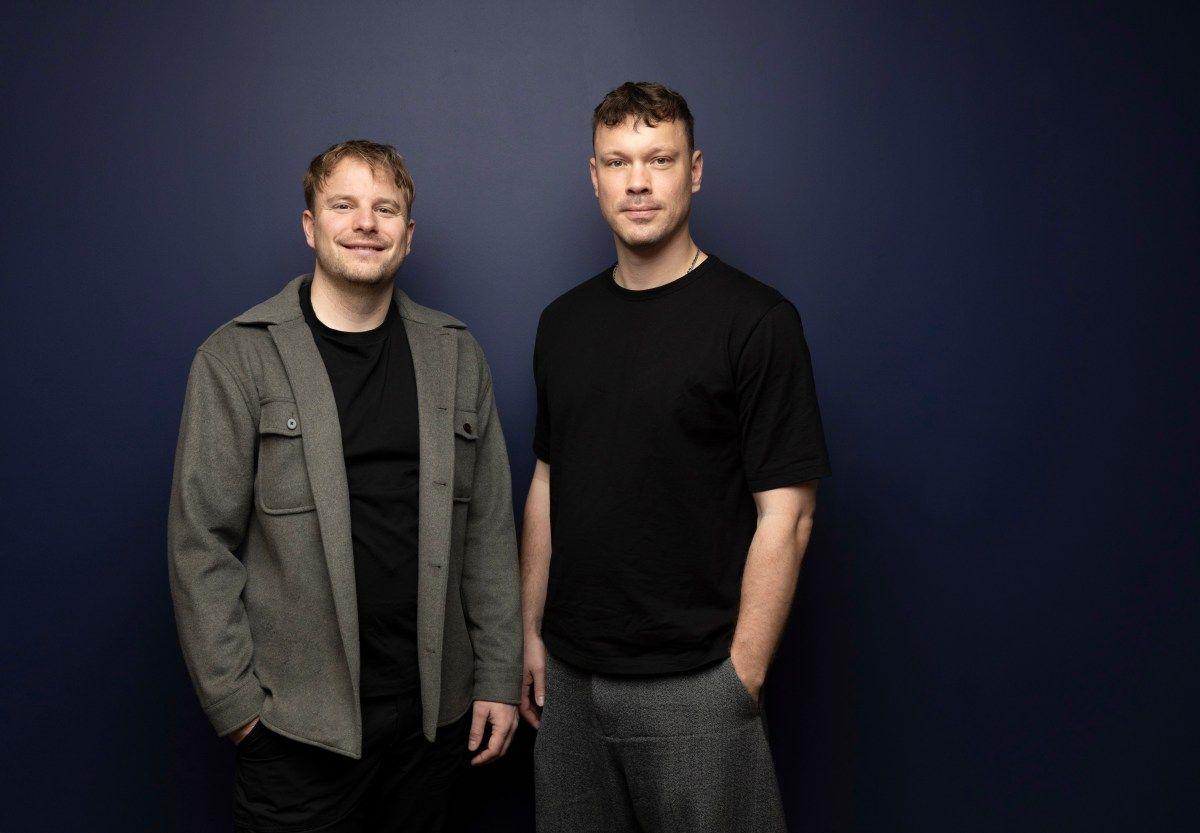Sesame AI Secures $250M Funding, Launches Beta for Conversational AI Smart Glasses
3 Sources
3 Sources
[1]
Sesame, the conversational AI startup from Oculus founders, raises $250M and launches beta | TechCrunch
Sesame, a conversational AI startup and smart glasses maker, has raised a $250 million Series B round and is opening up its beta to a select group of testers, the company announced Tuesday. The startup, headed by former Oculus co-founder and CEO Brendan Iribe and Ankit Kumar, former CTO of AR startup Ubiquity6, is working to create a personal AI agent that interacts with users using a natural-sounding human voice. The company plans to embed the personal AI agent into lightweight eyewear that is designed to be worn throughout the day and which users can interact with via voice. The startup first emerged from stealth in February, when it offered two demos of its technology -- AI voices named "Maya" and "Miles." The voices were soon accessed by more than a million people within the first few weeks, who generated more than five million minutes of conversation, according to a new post by Sesame investor Sequoia about its participation in the startup's Series B. "...the experience was unlike anything we'd used before. Sesame's conversational layer felt different," the post states. "It doesn't just translate LLM output into audio -- it generates speech directly, capturing the rhythm, emotion, and expressiveness of real dialogue." Early reviews of the tech demo seem to agree, as one report by The Verge described Sesame as "genuinely fun" and "natural-sounding." Sesame says its upcoming glasses will offer "high-quality audio" and access to an AI companion that will "observe the world alongside you." Sequoia also noted the smartglasses Sesame is building will be fashion forward, so they look like something you'd choose to wear even if they didn't offer built-in AI technology. A timeframe for their availability is not yet being shared; as Sequoia noted, "hardware takes time." On that front, Sesame may have an advantage. Its founding team also includes Oculus co-founder Nate Mitchell as its Chief Product Officer, former Oculus COO and Fitbit exec Hans Hartmann as COO, as well as former Oculus engineer manager and Reality Labs engineering director Ryan Brown, and longtime Facebook and Meta exec Angela Gayles. In addition to sharing the news of its Series B, Iribe announced on X that Sesame is now opening an early beta of the Sesame iOS app. The app experience will allow testers to get hands-on with the AI technology being built, as the app will have the ability to "search, text and think," he says. Beta testers are asked to keep their testing experiences confidential for the time being, which includes not discussing features or results beyond the official beta test forums.
[2]
Sesame raises $250M to advance lifelike voice companions and wearable devices
Sesame raises $250M to advance lifelike voice companions and wearable devices Sesame AI Inc., a company building lifelike artificial intelligence voice companions and lightweight wearable devices that enable natural, continuous conversation with an ever-present digital assistant, has raised $250 million in new funding to advance its voice-AI technology, expand its team and accelerate development of its companion wearable devices. Founded in 2023 by Oculus co-founder Brendan Iribe and technologist Ankit Kumar, Sesame is attempting to redefine how we interact with computers. The company is focused on creating voice-driven, lifelike companions that don't just execute commands but actually converse, listen and engage with users in a more human way. Sesame is developing a personal agent, an AI companion designed to be "an ever-present brilliant friend and conversationalist, keeping you informed and organized, helping you be a better version of yourself." The company's vision is for an assistant that can engage in meaningful dialogue, remember context, adapt to your preferences and feel more naturally interactive, as opposed to typical voice assistants that reply with short answers. As part of its vision, Sesame is also working on lightweight eyewear hardware, devices you wear all day that give you high-quality audio and let the companion "observe the world alongside you." While some reports called these smart glasses, the glasses won't have augmented reality or virtual reality, versus supporting voice interactions. To deliver on its promise, Sesame has created a "Conversational Speech Model" that processes audio and text simultaneously, enabling response times of just 200-300 milliseconds and allowing the companion to pick up emotional cues, tone and more human-like interruptions or pauses. The methodology differs from the classical voice assistant pipeline (speech-to-text - language model - text-to-speech) by integrating both semantic and acoustic features into one conversational process. While not yet ready to launch a product to the public, the company has research demos that include voice personas who can engage in extended conversations, react emotionally and participate in narrative or gameplay-style interactions, for example, playing a role-playing adventure. According to TechCrunch, the company is getting closer to launching something, though, as it has opened up beta testing to a selected group of testers. The Series B round was led by Sequoia Capital Operations and Spark Capital Management, with other undisclosed backers also participating.
[3]
Sesame AI secures $250 million Series B to redefine conversational wearables
The company also open-sourced its core model, CSM-1B, under an Apache 2.0 license, inviting developers to build on its technology. Sesame AI, a startup from Oculus co-founder Brendan Iribe, has raised $250 million in a Series B round and launched a beta version of its AI-powered smart glasses, aiming to advance voice assistant technology. The company was established in June 2023 by CEO Brendan Iribe, Chief Technology Officer Ankit Kumar, and founding engineer Ryan Brown. Their collective experience in artificial intelligence, speech technology, and consumer hardware guides the startup's mission. The $250 million Series B funding round was led by Sequoia Capital and Spark Capital, providing the financial resources to compete in the smart glasses market against established technology firms. Sesame is developing smart glasses integrated with advanced conversational AI. The system's AI voices, named "Maya" and "Miles," have been noted for their naturalism and emotional expressiveness. The technology is designed to capture the rhythm and emotion of human dialogue, making interaction with the device feel more fluid. This focus on natural speech is a central component of the product's design and user experience. A beta version of the AI-powered smart glasses is now available to users. This launch follows significant public interest generated by an early demonstration of the technology, which was accessed by over one million people. The interactions during this preliminary phase resulted in more than five million minutes of conversation being logged with the AI system, indicating a high level of user engagement prior to the beta release. In a related move, the company released its base AI model, CSM-1B, which is the technology powering the Maya assistant. This 1-billion-parameter model is available under an Apache 2.0 license, which allows for commercial use with few restrictions. Sesame positions its hardware as a lightweight, user-friendly alternative to more expensive and bulky virtual reality headsets offered by competitors such as Meta and Apple.
Share
Share
Copy Link
Sesame AI, founded by Oculus co-founders, raises $250 million in Series B funding. The startup launches beta testing for its AI-powered smart glasses featuring natural-sounding voice companions.
Sesame AI's Groundbreaking Funding and Beta Launch
Sesame AI, a startup co-founded by former Oculus executives, has secured a substantial $250 million in Series B funding, marking a significant milestone in the development of conversational AI and wearable technology
1
2
. The funding round, led by Sequoia Capital and Spark Capital, positions Sesame AI to compete with established tech giants in the smart glasses market3
.Innovative AI-Powered Smart Glasses
At the heart of Sesame AI's offering is a pair of lightweight smart glasses integrated with advanced conversational AI. The company aims to redefine human-computer interaction through voice-driven, lifelike companions that engage in natural, continuous conversation
2
. Unlike typical voice assistants, Sesame's AI is designed to be an "ever-present brilliant friend and conversationalist," capable of meaningful dialogue, context retention, and adaptation to user preferences.
Source: TechCrunch
Technological Breakthroughs
Sesame's technology is built on a "Conversational Speech Model" that processes audio and text simultaneously, enabling rapid response times of 200-300 milliseconds. This approach allows the AI to capture emotional cues, tone, and human-like interruptions, creating a more natural interaction
2
. The company has introduced two AI voices, "Maya" and "Miles," which have garnered positive reviews for their naturalism and emotional expressiveness1
.Beta Testing and Public Interest
Following a successful tech demo that attracted over a million users and generated more than five million minutes of conversation, Sesame AI has now launched a beta version of its AI-powered smart glasses
1
3
. The company is inviting a select group of testers to experience the technology firsthand through the Sesame iOS app, which offers features like search, text, and AI-powered thinking capabilities1
.
Source: SiliconANGLE
Related Stories
Open-Source Initiative
In a move to foster innovation and collaboration, Sesame AI has open-sourced its core model, CSM-1B, under an Apache 2.0 license. This 1-billion-parameter model, which powers the Maya assistant, is now available for developers to build upon, potentially accelerating advancements in conversational AI technology
3
.Future Prospects and Competition
With its focus on creating fashion-forward, lightweight eyewear that seamlessly integrates AI technology, Sesame AI is positioning itself as a compelling alternative to bulkier virtual reality headsets offered by competitors like Meta and Apple
3
. The company's experienced leadership team, including former Oculus executives and industry veterans, brings valuable expertise in hardware development and consumer technology1
.References
Summarized by
Navi
[1]
Related Stories
Sesame Open-Sources Maya's Base AI Model, Raising Concerns Over Voice Cloning Technology
14 Mar 2025•Technology

Sesame's AI Voice Assistant: A Leap Towards Human-Like Conversation
01 Mar 2025•Technology

AI Language Learning Startup Speak Raises $78M, Achieves Unicorn Status at $1B Valuation
11 Dec 2024•Business and Economy

Recent Highlights
1
Google Gemini 3.1 Pro doubles reasoning score, beats rivals in key AI benchmarks
Technology

2
Meta strikes up to $100 billion AI chips deal with AMD, could acquire 10% stake in chipmaker
Technology

3
Pentagon threatens Anthropic with supply chain risk label over AI safeguards for military use
Policy and Regulation





